Choices by Esi W. Cleland
She is a dark, tall, beautiful, witty Senegalese young woman in her twenties, with white teeth accentuated by her dark healthy gums. He is a Caucasian Alaskan boy of about same age, with smiling eyes and a liking for humour tainted with sarcasm that it turns out mademoiselle Senegal digs. This boy is also a bit of a punk. He’s not a full blown punk but he has a punkish flair that somehow works. What does this Senegalese girl turned woman have in common with this boy turned man from Alaska?
Not language.
Not skin colour.
Their names reveal their differences.
She, Aminata Senghor; he, Robert Patrick Harrington.
Even though she speaks foreign tongues as if they were her own, sometimes English, sometimes French, and even though she speaks in English, prays in French, whenever she weeps, she weeps in Wolof.
Her skin is the darkest of the black shades and he; they don't come whiter than him. His skin is queerly mottled with moles and freckles and red blotches. His beard grows at a rate faster than her dark, coiled kinks. He loves her skin.
It is smooth all over, from her face, down her nape, over the contours of her bosom, her rich dark areolas and her massive nipples which lie nestled in what looks like dark crinkled organza by Nicole Miller. Travelling further down her belly button, then deviating to cusp the smooth roundness of her behind, when boy Alaska tells fille-Senegal that he likes her skin, it means more than a mere compliment. It assumes so many meanings. Is he telling her that he likes her as she is, all her sins, borne of her blackness forgiven or is he just enjoying the uninterrupted caress of her skin?
Oh, they have things in common for they discover to their delight that there are shared experiences that transcend race, colour, culture, even social class. They both remember so vividly the rotten egg smell from high school chemistry class. They both remember how they used to get such a rush from reading innocent love scenes in novels. They are kindred spirits. He lost his virginity at eighteen; she gave hers at twenty one. They were both too old. They knew how to wait. These are the things that join them.
They laugh over their differences. She says it's cold in the middle of Fall. He says, cold? Are you from Africa? She likes the experience of discovering so many new things. Unlike the Senegalese men that litter her past, this Alaskan talks.
He talks when she's upset.
He doesn't call her baby.
Or whisper sweet nothings.
When he says something, it means something. He gushes over her. The descriptors he assigns her, she's never heard from Senegalese lips. He calls her gorgeous, beautiful, too pretty, and he wonders how he got so lucky. He tells her that he enjoys kissing her more than any other woman he had ever known because she actually has lips to kiss.
She on the other hand, likes his eyes that are sometimes azure, sometimes hazel. The only thing that disturbs her is she can find no names for these colours in Wolof, but perhaps therein lay the appeal. To her, he is exotic. It bothers her not that he may be merely experimenting with her, for she is not certain that she is not doing same.
Time goes by and when she attempts to sever the bonds of their relationship, he cried. She stayed because until now, no man had ever cried over her. She also realised then that even if it had once been, this was no longer an experiment. Even though she pretended not to have heard, it secretly pleased her when he announced that he would learn Wolof if it mattered to her.
If this was not real, someone needed to teach her what real is.
But how could she go on with this man, who kissed her tears when in Senegal, parents had met and smiled over a certain other young man, chosen to be her husband. She was practically married! She should count herself lucky that despite her feminist proclivities and big mouth, a normal man wanted her.
One day, as she and boy Alaska sat beneath the skies, admiring the constellations in a bushy clearing far away from any other humans, in short, doing white people things, she imagines what her life might be if she proceeds with him. That excites her. She’s always preferred the unknown. Then she thinks of the young native man. And it occurs to her, that she doesn't really know what he might be like, what his kiss may be like, so she begins to think that maybe he would be even more of a discovery.
One day, long ago, someone had advised her to forget what everybody else wanted and just choose based on what she wanted. She had chuckled at this seemingly sage advice because she knew that even though the world told her this, no one was ready for what she wanted. She wanted both. But the world wasn't ready for that. So as she sat in the clearing, she thought of a poem by Kwesi Brew that she had memorized long ago:
"'We have come to the cross-roads
And I must either leave or come with you.
I lingered over the choice
But in the darkness of my doubts
You lifted the lamp of love
And I saw in your face
The road that I should take"
And she exploded inwardly out, at the absurdity of poems and life and how poets over romanticize and make love seem so easy. Right then, in the darkness of her doubts, she wanted to do right, but how could she? She was scared; scared of being with boy Alaska because even though a year had passed, he still did not know that she prayed five times a day. While he was moral in his own way, perhaps even more so than many "good Muslims" that girl Senegal knew, he seemed to despise all religion.
The first movie they had seen together was a parody of Christianity. Perhaps that should have warned her, but it didn't quite register.
Right there that night, watching the big dipper and trying to distinguish the double star in its handle, her eyes brimming with tears she ended her secret relationship with Robert Harrington. She chose boy-Senegal not because she loved him better; she didn't even really know him! She chose him because she conned herself into believing that life with him would be simpler.
Choices was written by Esi W. Cleland.
Copyright Esi W. Cleland 2008.

Esi Woarabae Cleland was born in Aboso, Ghana, where she lived for the first six years of her life with her grandmother among Hausa speaking Moslems in a village that was largely Christian and monolingual – the language being Fanti.
After being transplanted to Accra, she obtained her basic education at University Primary School, excelling in English, Fanti and Athletics. She proceeded to Wesley Girls High School (WGHS) in Cape Coast, Ghana for her secondary education. At WGHS, she was active in the Writing and Debating Club, later became Co-president, and was instrumental in the production of the student magazine as well as organizing debates between WGHS and other secondary schools, notably Holy Child Secondary School, and Presbyterian Boys Secondary School.
After secondary school, she had a year-long stint doing voice-overs for radio and television in English, Twi and Fanti which she thoroughly enjoyed but had to give up when in 2002, she was awarded a Coulter International Scholarship for excellence in academics and leadership to attend Smith College, MA. She graduated Cum Laude from Smith College with a bachelor’s degree in Physics, was a First Group Scholar, finalist for the IBM/APS fellowship, recipient of the Adelaide W. Bull Paganelli Prize in Physics and was elected to Sigma Xi, a scientific honor society.
In addition to Physics, she held various leadership positions, and pursued her love for literature and philosophy and became interested in the role of formal logic in persuasive writing. She also wrote a column for the student newspaper The Sophian and in her final year, served as its Opinions Editor. While earning her Master’s degree in Medical Physics at Duke University, NC, she participated in several writing seminars which emphasized technique and structure. She kept up with her writing by self-publishing her articles on Facebook, an online social networking Website. In her last year at Duke, she joined a small community of intellectuals and dreamers engaged in the spiritual search and who met regularly to discuss books, life and self-knowledge, an engagement which heavily influenced her decision to return home upon completion of her studies.
Esi currently lives and works in Ghana and continues to marry her interests in science and literature. Ms. Cleland writes for The AFRican, a New York-based lifestyle magazine for Africans in the diaspora, is involved with The Baobab Prize, an African literary writing competition, maintains Wo Se Ekyir..., a blog that is gaining increasing popularity with young people in Ghana and the US and has recently taken up acting. An aspiring novelist, Ms Cleland is working on her debut novel, which she hopes to complete in 2010.


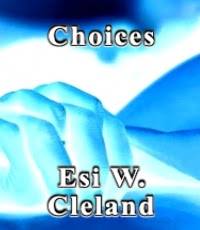
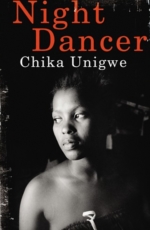

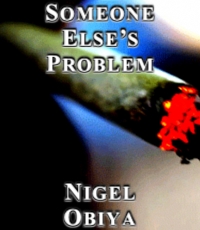

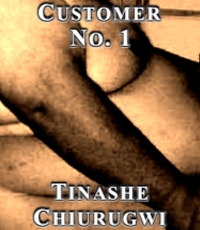
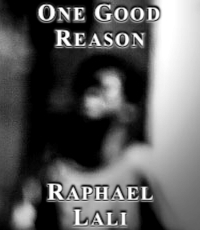
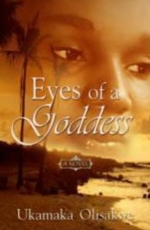

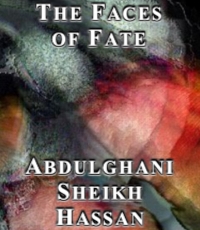

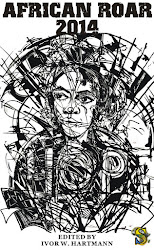
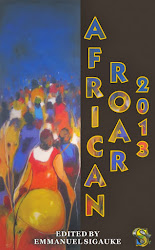
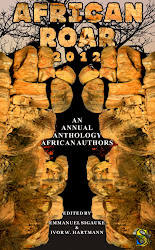

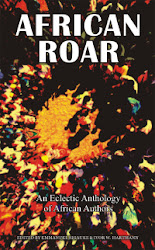

16 comments:
ST is very happy to proudly present, Esi W. Cleland and her debut ST story, Choices.
In just 1099 words Esi takes us on a breathless satori of love that leaps to the skies and transcends time/space, there to fly free like Icarus and kiss the rising sun. But as the title suggests, is their love strong enough to out-soar the shears of social conventions?
A bold, vivid and heart-felt story, Choices clearly marks Es W. Cleland as a most promising new author.
Powerful story, part of which read like a poem. The theme of inter-cultural dating was treated well in the story, although I would have wanted a chance to meet boy Senegal to see if the choice she makes at the end is not a big mistake.
It's quite an interesting piece for a budding writer. I'm so glad to be associated to people like Esi. This is class, real poetic class! keep it up!
Like the others say, very poetic. Do I detect Chimamanda, Tsitsi and a trace of Buchi in there? Can this story constitute proof that there is something called African Women's Writing without making the term sound patronising?
Genres aside, the story strikes a chord with those of us who find that we belong to intersecting subsects and have no choice but to make a crucial choice when it comes to relationships.
This story struck a deep cord with me. I think that more people than not fear following their hearts, and that fear leads them to cling to the safety of what is expected of them. It is understandable, yet so very sad. I empathize with the young woman--as she confronts the contradictory pull of deep love and safety/security---yet I find myself wishing she would take the leap of faith that a soulful love usually (if not always) requires--for the rewards are beyond compare.
Holly
A good example of using dramatic differences (i.e. exaggerated) to illustrate a more subtle point about relationships in general. Do we choose the exotic or the safe? And can they ever be the same thing? There could very well be something called African Women's Writing, but I think the heart of this story transcends that, in a poetic and beautiful way. (As a style element, personally, I would have used "deceived" instead of "conned" in the last line. But then again, style IS personal...)
Esi!!!! I'm so proud of you! I know we only knew each other for a short time...but I knew and still know that you will go far with your writing. Goodluck!!!!
Maryann (from Medical Physics...lol)
You are bound for stardom
Umm! Nice story Esi.You are a rising star.
Fantastic story. Thoroughly enjoyed reading it. You are very talented!
@Ivor, Maryann, Ken, Nana, Ghanagirl and Sarudzayi: thanks for the encouragement and vote of confidence. I look forward to sharing more short stories with you soon. Watch this space:)
@Emmanuel, maybe Aminata shows a certain commitment to the yet to be union with the native boy that if he shares, might see their marriage go the long haul. There's the temptation to hope that if she chooses mr. harrington, their love will surmount all odds but is love alone enough? Still, we may hope.
@Masimba, I regret to say i've neither read chimamanda nor tsisi but that's a transgression i hope to correct. If i sound like them, i hope it stems from that which is similar in different voices telling their own stories. As a budding writer, one thing i find curious about my style is that i'm almost never captured by the physical appearance or genders of the characters i create (even though i try to put body to the characters in this story). Usually, i fall in love with their voices, feelings, thoughts, and inner dialogue. I'm not sure which african writer i shd read to see more of this kind of writing but i'm experimenting a lot with this in the novel i'm working on. I'm excited!
@Holly, is love enough?
A great and powerful story Esi, but i wondered.
I wondered whether the girl truly loved boy Alaska. Someone in the comments section used the words exotic and safe. So i'll steal them for the moment!!
The girl chose the safe option (man from Senegal) but she mentioned that she did not 'know' him. From my understanding you cannot love unless you 'know'.
But then again, the girl mentioned that the exotic option (boy from Alaska) did not know that she prayed five times a day. Meaning that he did not know her. Why? Well she never told him. That's when i wondered why?
Choices, choices !
Wow, great story. I bet he's still waiting for her though; somewhere in Alaska, under a sheet of ice, alone, reading philosophy, or searching for her on the internet. Maybe in the next story...
Your writing is direct and sensual, very physical. The skin descriptions are terrific. Her skin - perfect.
"His skin is queerly mottled with moles and freckles and red blotches."
Ouch! Sounds like an older man looking forward to cancer surgery. The power of love! Not blind maybe, just near-sighted?
Isn't love strange?
All and all a great work by a young author. Your voice is confident and no-nonsense - nearly scientific. But you do not sacrifice any of the romance or tragedy of the affair with your precision.
I just can't help but wish for a differernt ending. We all want to be happy in the end. I would have written the ending differently. Somewhere between happy-ever-after and a life-long-struggle. Oh art, must you imitate life? Yes, Juliet must make the fatal mistake or the play ends badly instead of sadly.
The story is tight. i like the ending, it was different. its always good to be different.
You are bound for stardom
It's quite an interesting piece for a budding writer. I'm so glad to be associated to people like Esi. This is class, real poetic class! keep it up!
Post a Comment